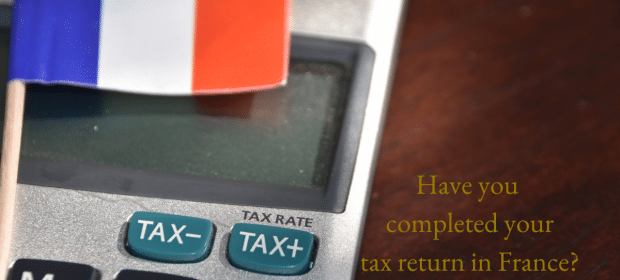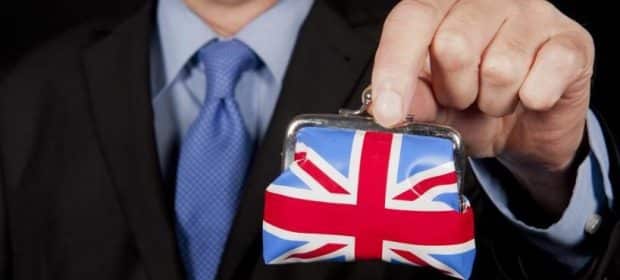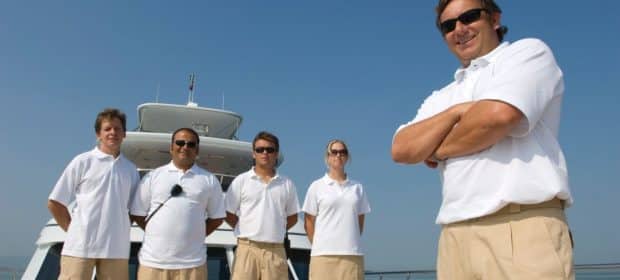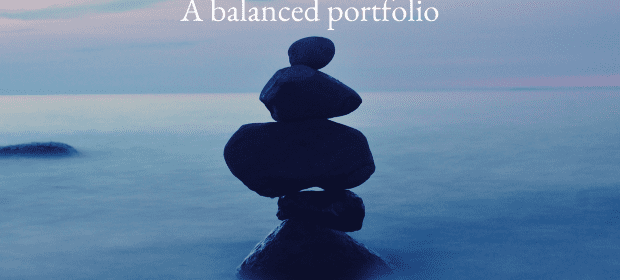Viewing posts categorised under: Yachting
Should I make a tax return? If so, why?
By Peter Brooke
This article is published on: 16th June 2018

16.06.18
By Peter Brooke & Patrick Maflin of Marine Accounts
Understanding tax liability is still a big issue for yacht crew; in fact, the confusion mainly comes from the lack of clarity about being “Resident” or “Non-Resident” somewhere. Many crew members are still putting their heads in the sand and ignoring this issue; in our humble opinion this needs a cross-industry culture change, as the repercussions for continuing to ignore tax are becoming more onerous and punitive.
So why should I bother declaring my income?
• You will avoid massive penalties, fees and interest on the taxes that you ‘might’ owe should you be investigated later.
• Your info is out there: The Automatic Exchange of Information means that all your financial information is already being shared between governments.
• Common Reporting Standards: All financial institutions such as banks, insurance companies, and investment firms are required, by law, to attain, keep and share residency information for all account holders.
• I want a mortgage: Most lenders now require proof of earnings in the form of tax returns.
• I live on a yacht and so am not resident anywhere! Does your home authority agree with your assessment of your situation? Get it in writing!
On this last point, it is a huge misconception that just because you believe that you aren’t resident somewhere, the tax authorities will not be interested in you. The onus is firmly on the individual to prove non-residency, not on the authorities to prove residency. If you can’t present a convincing case, it is highly likely that the tax authority with which you have that link will deem you to be a resident. If you haven’t declared your income to them voluntarily, they will look less favourably at your situation and can apply significant fines and interest.
So where should I declare?
If in doubt look at it in this order:
1. Time spent – if you spend time ashore where are you spending it? Keep a diary/spreadsheet of EVERY day.
2. Assets – where is most of your wealth kept?
3. Family – do you have major links to a certain country (especially important if you have children)?
4. Nationality – if you are not resident in a country due to time spent, assets or family links it is likely you should be declaring your income to your ‘home’ authority – i.e. where you are from originally.
Don’t wait to be called upon by any ‘linked jurisdictions’, be proactive, understand the tax residency rules of all of these ‘linked jurisdictions’ and voluntarily declare to the most strongly linked one. It will help you sleep at night and could save thousands in fees and interest, as well as avoid black marks on your record.
This article is for information only and should not be considered as advice. Marine Accounts assist crew with tax residency in many jurisdictions.
Peter Brooke is a financial adviser to the yachting community with the Spectrum IFA Group. Spectrum has created HORIZONS, a unique financial solution just for yachts and their crew at
www.my-Horizons.com or contact@my-horizons.com or peter.brooke@spectrum-ifa.com
Can you work on yachts and still get a UK state pension?
By Peter Brooke
This article is published on: 30th June 2016

30.06.16
Even if you are (or have been) a UK tax resident and religiously file your Seafarers tax return every year (which you probably should), does it mean you benefit from such things as the UK State Pension? Unfortunately not…. in order to qualify for any UK state pension (currently approximately £155per week from around age 67,) you need to pay National Insurance contributions (NIC). You need at least 10 qualifying years to receive any of the ‘new state pension’ (for those born after 1951).
In order to be eligible to pay NIC and therefore build up some allowance for UK state pension you must have a NI Number.
There are 4 main classes of NIC
- Class 1 – paid by UK based employees earning more than £155 a week and under State Pension age
- Class 1A or 1B – paid by employers
- Class 2 paid by self-employed people
- Class 3 – voluntary contributions
- Class 4 – paid by self-employed with profits over £8,060p.a.
For yacht crew, who very rarely have any social security contributions in any country, due to the flag state not collecting them from employing companies or due to not having social security systems as we know them, it is highly likely that you will have gaps in your NI record. If you do have a gap it is possible to pay ‘voluntary’ contributions to top up your NI record and receive more pension income later.
We believe that crew should be paying the Mariners Class 2 NICs which are considerably cheaper than Class 3 and have the additional benefit of ‘contribution based employment and support allowance’ when they return to the UK, which is not available if you pay class 3 NICs.
Currently it costs £2.80 a week for Class 2 (£145.60p.a.) or £14.10 a week for Class 3 (£733.20p.a.); either way, the cost is very low to secure an income for life later.
To put this into perspective… if you were to theoretically only pay Class 3 for 35 years you would invest a total of £25 662; you then receive £155per week from, say, 67 which is £8060p.a. which equates to a yield on investment of 31% per year – a no brainer, assuming of course the UK government can continue to pay! *also it is unlikely you can only pay Class 3 for all 35 years, but the point is clear!
However, the form to apply for a review of the NI gap and to register to pay voluntary NICs is complicated and quite detailed which can put some people off from even applying to see if they are eligible to pay it. This is also another great reason to keep a seaman’s discharge book up to date at all times, right from the start of your career.
I would like to thank Clare Viner from Marine Accounts, who are experts in yacht crew taxation, for her assistance in researching this article.
There is also a wealth of information on the UK government website and a Mariners NI Questionnaire which can be filled out for a review of the situation
https://www.gov.uk/government/publications/mariners-national-insurance-questionnaire
This article is for information only and should not be considered as advice.
Planning for the yachting season ahead
By Peter Brooke
This article is published on: 22nd February 2016

22.02.16
You spend much of your professional lives working hard for other people; this season I want to challenge you to do one thing for you and your future every month.
MARCH (i.e. now):
Consolidate your bank accounts – you don’t need them all.Have an account in the currency in which you are paid and another in any other currency you regularly use. You don’t, need lots of accounts, but make sure your total balance is below the compensation limits for the jurisdiction in which you hold the account .
April:
Don’t spend money just moving it around, open a currency broker account. If you need to move money from one currency to another, don’t use your bank, your currency broker can save you a small fortune on exchange rates and fees.
MAY:
Invest in yourself! What are you going to do at the end of the season? Consider now what your next set of exams will be and when you can do them. Put money aside for fees and living costs. Check your visas and passports if you are crossing to the U.S. later in the year. And start a diary (see November…).
AUGUST:
This is the really busy time; stop and consider your longer term future. How long do you want to stay in yachting? What do you want to do after yachting?What do you want to get from yachting (personally and financially)?
SEPTEMBER:
The season is calming down – are you really covered? Time to check exactly what health insurance you have on board and if there is any accidental injury or even death in service protection for you and your beneficiaries while you work. When you know, tell someone at home so they can claim on your behalf if necessary.
OCTOBER:
Cash is no longer king. At the end of your season you may have a pot of cash that you can’t get into your bank (due to strict money laundering rules). Negotiate to have tips paid directly with your salary into your bank account, keeping only the petty cash required. Many Captains will do this.
NOVEMBER:
Tax residency is a matter of fact. Get organised and keep a diary of your travels. Yacht crew are “approached” by various tax authorities that believe you might be a resident. It’s not down to them to prove that you are a resident in their country, it’s down to you to prove you’re not. Understand the residency laws of the countries where you are most likely to become a resident, then keep a diary and flight ticket stubs, to support your case.
DECEMBER:
If you’ll be in the yachting industry for more than two or three years, seriously consider saving for your future, Your friends on land are paying tax and social security, which will give them something at retirement – are you? It’s up to all crew to put something aside (I suggest at least 25 percent of salary) while they’re in the industry to try and secure their financial wellbeing. The million dollar rule – to retire on an income of $/€3,OOO per month in 15 years, you will need approximately $/€1.1million in assets.
Cogs4Cancer 2015 – Barcelona to Antibes
By Spectrum IFA
This article is published on: 8th October 2015
The Finish Line
Just after 5pm the peloton arrived into the IYCA Quay in the port of Antibes. The 24 strong group of riders had completed 870km in five days – a momentous feat by any standard. As the riders approached the quay they were re-joined by approximately 80 riders riders that had joined them for the last 88km on the French Tribute Ride. The superyachts at berth along the quay hooted their horns in celebration with over 200 other people waiting to greet the riders at the finish line.
The Spectrum IFA Group had sponsored Lee Mutch and the Cote d’Azur team were on hand to congratulate Lee and the other riders on finishing the trip.
As of Saturday Cogs4Cancer 2015 has raised €252, 716.70
[nggallery id=49]
Day Five – the final stage
Cogs4 Cancer Tribute Ride – La Ciotat to Antibes
 Friday 9th October, the final stage but one of the longest days ride with about 180km to covered. Saddle soar, battered and bruised, the riders will definitely be looking forwardt o today’s ride. After completing about 100km the main team of riders will be meeting the guys and girls in Cogolin for the Tribute Ride in to Antibes. With the extra 80 plus riders bring home the main team, the afternoon will be a little more relaxed and jovial!
Friday 9th October, the final stage but one of the longest days ride with about 180km to covered. Saddle soar, battered and bruised, the riders will definitely be looking forwardt o today’s ride. After completing about 100km the main team of riders will be meeting the guys and girls in Cogolin for the Tribute Ride in to Antibes. With the extra 80 plus riders bring home the main team, the afternoon will be a little more relaxed and jovial!
The whole team of riders are expected to enter the IYCA Quay for the official finish line for about 17.00. So if your in the Antibes area Friday afternoon, join us all welcoming in the Cogs4Cancer riders.
Don’t forget to keep up to speed with the riders en-route with the live tracking here .
If you feel their efforts are worthy you can also donate here
[nggallery id=46]
[nggallery id=48]
Day Four
Thursday 8th October, the penultimate day and the finish line in sight…well, almost! After yesterday’s ride, probably the most challenging yet, the team are certainly on the home straight. Leaving from Nimes, the team will ride south-east towards Aix-en-Provence which will be at their 110km mark. After taking in the delights of Aix and the stunning scenery…. they will sweep further south. The Cogs4Cancer team will head towards La Ciotat for teh Day four finish line, bringing the days total ride to over 170km. Arriving in La Ciotat will be a milestone and they will be met by many friends joining them for the final days Tribute Ride.
 The French Tribute Ride will see upwards of 80 riders joining the main team of 24, to cycle either 82km from La Ciotat to Antibes or the shorter 33km from Col de Testanier into Antibes on Friday, the final day. Last years welcoming event was superb, with hundreds of family and friends at the IYCA Quay in Antibes to welcome in the saddle sore riders after their 2014 ride from Ancona in Italy. This years welcome celebrations are expected to be even bigger, so if you are in the Antibes area Friday 9th October at about 17.00 join in the festivities and welcoming back the riders after their 850km ride form Barcelona.
The French Tribute Ride will see upwards of 80 riders joining the main team of 24, to cycle either 82km from La Ciotat to Antibes or the shorter 33km from Col de Testanier into Antibes on Friday, the final day. Last years welcoming event was superb, with hundreds of family and friends at the IYCA Quay in Antibes to welcome in the saddle sore riders after their 2014 ride from Ancona in Italy. This years welcome celebrations are expected to be even bigger, so if you are in the Antibes area Friday 9th October at about 17.00 join in the festivities and welcoming back the riders after their 850km ride form Barcelona.
[nggallery id=45]
Day Three
Wednesday 7th October will see the riders starting in Narbonne, traveling near the coast along to Agne, then moving up towards Montpellier which is at the 100km mark for day three. Staying inland the team of riders will be heading for the finish line in Nimes, about 169km for the days ride.
 Not forgetting the real purpose of this incredible ride. All proceeds, that means absolutely 100% of the money raised will go to charity. The Cogs4Cancer riders have completely self-funded the whole trip with the support, sustenance and medical assistance through out this week, generously given for free.
Not forgetting the real purpose of this incredible ride. All proceeds, that means absolutely 100% of the money raised will go to charity. The Cogs4Cancer riders have completely self-funded the whole trip with the support, sustenance and medical assistance through out this week, generously given for free.
The four charities supported are: CANCER RESEARCH UK, L’ARCHET HOSPITAL NICE, CANCER SUPPORT GROUP 06 and ISIS CENTRE AZUREEN DE CANCEROLOGIE WELLBEING PROGRAMME.
Don’t forget to keep up to speed with the riders en-route with the live tracking here . If you feel their efforts are worthy you can also donate here
[nggallery id=44]
Day Two
Tuesday 6th October will take the riders from Figueres in Spain across the boarder into France with the day two finish line in Narbonne, just a little relaxing ride of about 170km! Only three more days in the saddle for team.
 Keep up to speed with the riders on the following tracking app here.
Keep up to speed with the riders on the following tracking app here.
In the image gallery below you can see images of the support vehicles supplying the Cogs4Cancer riders with welcome food breaks kindly supplied by the ladies from Gourmet Deliveries and EGP. Delicious food packed full of carbohydrates and protein to keep the guys and girls going.
[nggallery id=43]
[nggallery id=42]
Day One
On Sunday the Spectrum Barcelona office turned out to support about 40 riders who joined the Spanish tribute ride, beginning the route at OneOcean Port Vell Marina. The guest riders supporting Cogs4Cancer took the ‘Ronda Verda’ circular route, a circuit for cyclists crossing the natural scenery throughout the Barcelonès county. This route consisted of six main sections: Montjuïc, Llobregat, Riverside Park, Serralada de Marina Park and the Sea Front.
At 07.30 on Monday 5th October the 24 riders will embark from OneOcean Marina Port Vell, Barcelona on a ride that will take them 850km over the next five days with the finish line awaiting them in Antibes, France.
Day one will take the riders along the coast north to Tossa de Mar and then inland continuing north to the stage one finish in Figueres, covering roughly 165km. The Spectrum IFA are proud to be sponsoring Lee Mutch & Cogs4Cancer and will be in Antibes on Friday 9th October to welcome the whole team to the finish line.

As of Monday October 5th, Cogs4Cancer 2015 has raised €214.333,51. The four charities supported are: CANCER RESEARCH UK, L’ARCHET HOSPITAL NICE, CANCER SUPPORT GROUP 06 and ISIS CENTRE AZUREEN DE CANCEROLOGIE WELLBEING PROGRAMME.
There is a live tracking of the riders here so you can see the progress. If you feel their efforts are worthy you can also donate here
At The Spectrum IFA Group we feel it is a very worthy cause and so we are proud to have sponsored a rider, Lee Mutch. We wish good luck to all the team.
[nggallery id=41]
Cogs4Cancer 2015 – The new kit has arrived
By Spectrum IFA
This article is published on: 10th September 2015
 Check out the new Cogs4Cancer 2015 team colours !!!
Check out the new Cogs4Cancer 2015 team colours !!!
The Spectrum IFA Group are for the second year running sponsoring Lee Mutch, Director at Inter-Nett Monaco.
Starting in 2013, Cogs4Cancer has grown year on year with over €563,000 raised so far. A truly spectacular event, this year is proving to be even bigger than last years ride with the total amount raised just for the 2015 event reaching €164,058.91 (as of 9th September).
Starting on Monday 5th October in Barcelona, the Spectrum team will be at the starting line to wish all the riders the very best of luck on their heroic journey covering 850KM in 5 days.
Cogs4Cancer fundraising hits €285,000
By Spectrum IFA
This article is published on: 28th November 2014
 Back in October there were 16 fearless riders that set off from Ancona in Italy and after cycling over 850km in six days arrived fresh faced in Antibes, France.
Back in October there were 16 fearless riders that set off from Ancona in Italy and after cycling over 850km in six days arrived fresh faced in Antibes, France.
This gargantuan ride was completed with one thing in mind – to raise as much money as possible for cancer research. All funds raised, that means 100% are in aid of Cancer Research UK, Clinique Tzanck Cancer Care unit in Mougins, France and the Children’s Cancer unit at the Lenval Hospital in Nice.
The Spectrum IFA Group were very proud to be sponsoring Lee Mutch on this epic ride and were delighted to be part of the other fund raising events held in and around Antibes.
The amount raised at this time has hit an unbelievable €285,560.06.
Financial success from your yachting career
By Peter Brooke
This article is published on: 27th November 2014

27.11.14
RULE: Conceptually plan out different financial pots.
This is a really good way to plan your future in yachting. There is no need to have different accounts for these “pots”, although it may help.
Pot 1 – Emergency fund – we all know how volatile the yachting industry can be in terms of job security. It is important that if you suddenly find yourself without a job you can at least survive for a few months, get yourself to one of the main yachting centres and afford accommodation while looking for work. I recommend having at least 3 months’ salary in a bank account at any time.
Pot 2 – Education – in order to progress your career it is vital to consider the costs of education. Hopefully you will be on a yacht where Continual Professional Development (CPD) is part of the culture but there will still be courses that you need to fund yourself. Start to plan when you will need the money for the next course and how much it will be… then divide the amount by the number of months until the course, and save that amount EVERY month into an account. Remember there may be additional travel or accommodation costs too.
Pot 3 – Exit – you have now saved an emergency fund and are putting money aside for the next course…. now consider what you plan to do when you leave yachting? Are you going to start a business? Return home? Retire? You should now look to save at least 25% of your income for this purpose. It is very easy to go through a yachting career and end up with very little saved for when you want to leave. There is no provision made by your boss for your long term future, it is down to you to save.
Remember if you worked on land you’d lose at least 25% to social charges and tax anyway. As these are longer term savings you can now consider making investments to try and grow your money more. Make sure as your income grows, your savings and investment amounts grow too.
Pot 4 – Property – if one of the investments that you want to make for your long term future is into property, then you need to start planning what you need to put aside every month to be able to save enough for a deposit and legal fees/taxes. In France, for example, a yacht crew will now need at least 28% of the property purchase price to be able to borrow… saving this amount takes discipline and planning.
Pot 5 – Expenditure – all of the above requires a habit of saving and bit of effort to form the best plan… the single best way to successfully save for your future is to be strict with your own expenditure. Look at all of the above and then give yourself a set amount each month that you can spend on having fun and travelling. Do this well and the more difficult disciplines above will be easy. Saying no to another night out is the hardest part!!
This article is for information only and should not be considered as advice.
Health Insurance for superyacht crew
By Peter Brooke
This article is published on: 7th October 2014

07.10.14
In a previous article I spoke about the list of 10 rules by which we believe you should live your yachting careers. To expand on these rules I have written a series of articles to show the details behind each rule.
RULE #5 – Check the medical cover available to you from the yacht.
YACHT COVERAGE
If the yacht offers (and pays for) your health insurance as part of your employment package be sure that you’re fully covered at work and off the boat. A crew friend of mine got knocked off his scooter and was taken to hospital near Antibes. Because he was not covered by the French state system (he worked on a foreign-flagged boat), the boat’s health insurance provider was liable for the entire amount…or so he thought. As it turned out, he was not covered by the “group scheme” when he was not on board and had to raid his savings for the money. It’s vital to check if the cover provided is as comprehensive as you think it is.
This is also something to check when you are having an interview for the job; make sure you are getting either membership of a group scheme or additional income to fund your own policy.
STATE COVER
Depending upon your nationality and the vessel’s flag, you may be eligible to receive social security cover from the flag state; check with your captain or purser when joining the boat.
JOB SECURITY
Job security in the yachting industry is not one of the great benefits; investigate whether it’s better to opt out of your employer’s cover and have them fund a personal policy that can be taken with you should you move job/yacht. You could build up significant no-claims bonuses.
When researching a policy and the policyholder, consider the following:
GEOGRAPHICAL COVERAGE
Normally divided into Europe, Worldwide, excluding North America (N.A.), or Worldwide including N.A. Think about where you’re likely to be most of the time. Some policies allow trips to N.A. for up to 90 days.
COVERAGE LEVEL
The most important issue – do you want to be fully reimbursed for every eventuality or just “the big stuff”? All insurance companies will produce benefit tables for their different levels of cover, though it’s difficult to fairly compare all plans. It’s about finding the best compromise for your situation.
EXISTING CONDITIONS
If you have an existing chronic condition, it may not be covered although different underwriting forms exist to decide this with different insurers. This is important to raise when choosing a scheme.
EXCESS
You can reduce your premium by taking a larger excess. This is the amount you pay first before the coverage from the insurance company kicks in.
NO CLAIMS BONUS
If you don’t make a claim in a given year, then you’ll receive a reduction on the premiums the following year (just like car insurance). Some insurers don’t offer this.
MATERNITY
If you’re planning a family and want to ensure the costs of the treatment and delivery, you’ll probably need to take out maternity coverage from the beginning. Most insurers will demand that you’re a member (with added maternity cover) for at least 12 months BEFORE getting pregnant.
This article is for information only and should not be considered as advice.
Buying Property in France
By Peter Brooke
This article is published on: 23rd May 2014

23.05.14
Buying property is one of the most major investments we make in our lives. For yacht crew, it’s rarely for a primary residence, which makes the considerations for buying a little different.
Location will always come first, but when using property as an investment, yield should be a very close second. This is the net annual rental income (after all costs) divided by the value. One of the biggest reasons why property is considered the best investment is because it’s possible to leverage, or borrow, to buy it, especially when interest rates are low. For example, if you buy property for €200,000, and it gives a rental income of €8,000 per year, a four-percent yield is realized. If you only invested €40,000 and borrowed the remainder at three percent interest, then you immediately double your yield to eight percent. This is a compelling reason not to invest all your capital into a property. Even if interest rates are higher, it may still make sense, as it’s often possible to offset the interest against rental profits to reduce income tax.
Buying property in France is very popular amongst yacht crew, especially near the yachting centers of the Côte d’Azur. This is because the property can be a great escape in the winter when the yacht is in port or the yard, and also gives a great seasonal rental yield in the summer, the time when crew are hard at work.
These areas also are very sought after and selling a property is rarely difficult. The costs of buying in France are quite high; government taxes and notary (legal) fees total approximately 7.5 percent of the purchase price, and agent fees (when you sell) can be five or six percent. This means 13 percent growth on the property is necessary to make any capital profit, which is why property should be seen as a long-term investment and why rental yield is important. Annual taxes also apply and vary depending on where the property is located and its size. Borrowing in France is still possible for yacht crew, although it’s getting a little harder as banks tighten their rules. Generally, crew can borrow 75 (sometimes 80) percent of the purchase price. This means you need approximately 32.5 percent deposit (including notary fees) to start your property portfolio.
French lending laws allow you to be up to one-third of your income in debt, so if you earn €3,000 per month, you cannot spend more than €1,000 on your debt repayments. Over 20 years at three percent, €1,000 per month equates to a loan around €185,000. For tax-resident yacht crew (in France or any other country), the loan-to-value can often be higher as tax documents make banks feel more comfortable about lending. Any rental income is taxable in France, whether you are resident or not, and capital gains tax and inheritance tax will be initially liable in France, too.
There are many considerations when buying property, so seek good, qualified advice especially if it’s part of an overall plan; a mortgage broker should be able to find the best terms for you, often at no cost.
Producing Income from Your Investments
By Peter Brooke
This article is published on: 13th April 2014

13.04.14
If you’ve managed to put aside money for your retirement, good job — no one else has been saving for you. But how do you change the balance of your assets to be able to draw an income to supplement a smaller, land-based income or to pay for your lifestyle into retirement?
* Restructure your investments before you need the money. This gives you time to ride out any difficult market years before you retire or move ashore. Crises in stock markets always affect stocks in pre-retirement worse, so protect the value of your funds in the few years running up to taking an income, but keep one eye on inflation as this will reduce the buying power of the “pot” of money you’ve built up.
* Consider the total value of your retirement assets — shares, pensions, funds, investment properties, cash and bonds — as one entity. Then ask yourself, “If I had all of this as cash today, what assets would I buy to give me the income I need?” This question helps you reassess all your assets and bypass any loyalty to a certain asset type, such as property. If Dave bought an apartment nine years ago for €180,000, rented it out and paid off the mortgage, and the apartment is now worth €280,000 with rent at €1,000 per month, after management charges, this works out as a 3.8 percent yield. Dave may do better using the money from the property elsewhere, perhaps by reinvesting in bonds.
* Once the income starts, look at each asset class in terms of income stream and cash flow rather than capital appreciation. It’s important to try and grow the “pot” to beat inflation, but the income is paramount. Yields on equities today are outstripping most government bonds; the capital may fluctuate but the income will remain. To draw an income of €3,500 per month, you need an asset pot of approximately €900,000. With €42,000 per year, a proportion of the cash can be put in longerterm assets (property, equities, etc.) to help grow and replace the funds you withdraw.
Many yacht crew have a large proportion of their assets inside insurance bonds, as they offer tax-advantageous growth and income. However, some don’t offer a way to take a “natural income,” as the funds are all accumulating-type funds. The income that you draw down by cashing in fund units affects the underlying balance and needs to be rebalanced with a steady internal income stream.














